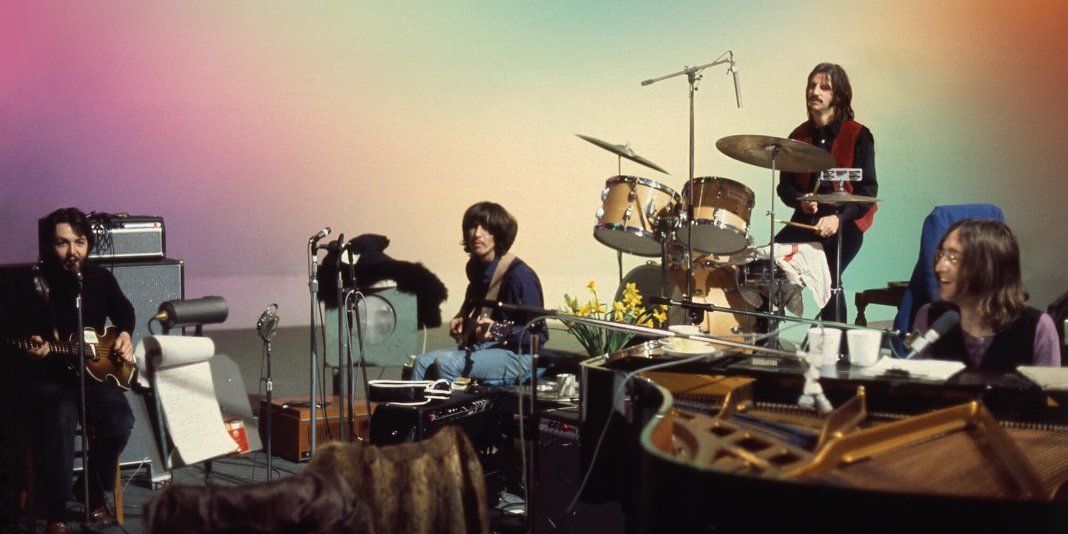Paul McCartney's AI-Assisted Time Travel Music Project
Core Concepts
McCartney uses advanced technology to revisit Beatles' history, highlighting the impact of their acrimonious breakup on their legacy.
Abstract
Paul McCartney's project of revisiting the Beatles' past through AI-assisted music production reflects a nostalgic attempt to rewrite history. The content delves into the band's rise to fame, creative evolution, and tumultuous end, emphasizing McCartney's efforts to reshape their narrative. It contrasts Lennon and McCartney's solo careers, highlighting the shift in music consumption from rockism to genre-fluid listening habits in the 21st century. The analysis explores political undertones in the Beatles' work, McCartney's innovative musical style, and the changing landscape of popular music culture over time.
Owen Hatherley, Studio Trickery — Sidecar
Stats
In 2023, money can buy AI-assisted time travel.
Let It Be album consisted mostly of bad songs.
Anthology series featured outtakes and unreleased songs.
'Now and Then' was never completed due to Harrison's disapproval.
Lennon and McCartney agreed to stop insulting each other publicly in the mid-1970s.
Yoko Ono offered surviving Beatles tapes for recording new songs.
'Now and Then' outsold an actual new Rolling Stones album.
Peter Jackson plans to uncover more 'new' Beatles songs using AI technology.
Quotes
"McCartney’s project of going back in time... is proof that the science-fictional future will turn out to be boring."
"The rise of McCartney’s reputation at the expense of Lennon’s over... has something to do with how music is consumed today."
"The Beatles proved that working-class people could create complex art."
Key Insights Distilled From
by Owen Hatherl... at newleftreview.org 12-26-2023
https://newleftreview.org/sidecar/posts/studio-trickery
Deeper Inquiries
What impact does nostalgia have on reshaping musical legacies?
Nostalgia plays a significant role in reshaping musical legacies by creating a sense of longing for the past and influencing how we perceive historical works. In the context of music, nostalgia often leads to the romanticization of certain eras or artists, elevating their significance and impact beyond what may have been initially perceived. This can result in a reevaluation of an artist's contributions to music history, sometimes leading to a revisionist view that emphasizes their importance even further. Additionally, nostalgia can drive interest in older music, prompting reissues, remasters, and reinterpretations that keep these works relevant in contemporary culture.
How has modern technology influenced artists' ability to reinterpret historical works?
Modern technology has revolutionized artists' ability to reinterpret historical works by providing tools and resources that were previously unavailable. Advancements in recording techniques, digital editing software, artificial intelligence (AI), and virtual reality have enabled artists to manipulate and reimagine existing songs or performances with unprecedented precision and creativity. For example, AI-assisted time travel allows musicians like Paul McCartney to recreate lost moments or collaborate with deceased bandmates through digitally edited recordings. These technological innovations open up new possibilities for artists to breathe new life into old material while pushing the boundaries of artistic expression.
Can music still serve as a platform for social commentary in today's culture?
While the landscape of popular music has evolved over time, it continues to serve as a platform for social commentary in today's culture. Although the nature of this commentary may have shifted from overtly political messages to more subtle forms of expression, musicians still address societal issues through their lyrics and compositions. Music remains a powerful medium for reflecting on current events, advocating for change, expressing personal experiences or emotions related to broader social issues such as inequality or injustice. While other forms of media may dominate discussions around politics or activism today, music retains its unique ability to connect with audiences on an emotional level and spark conversations about important topics affecting society at large.
0
